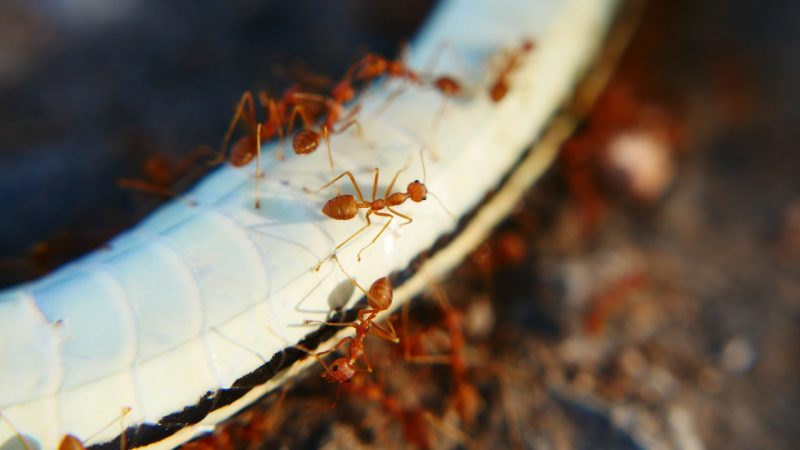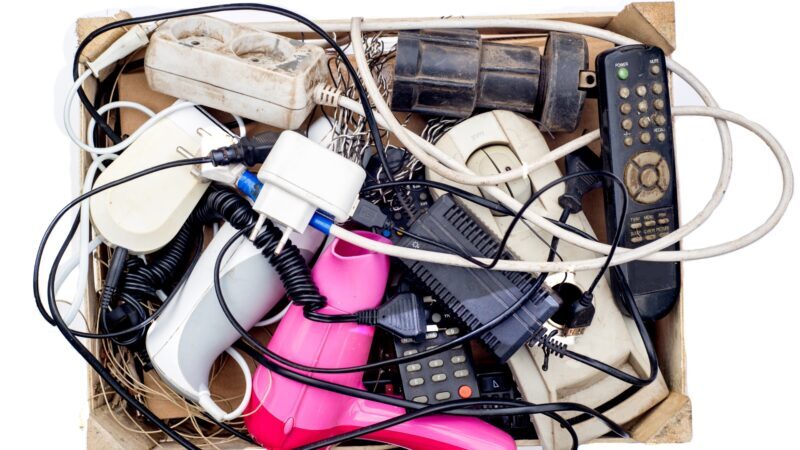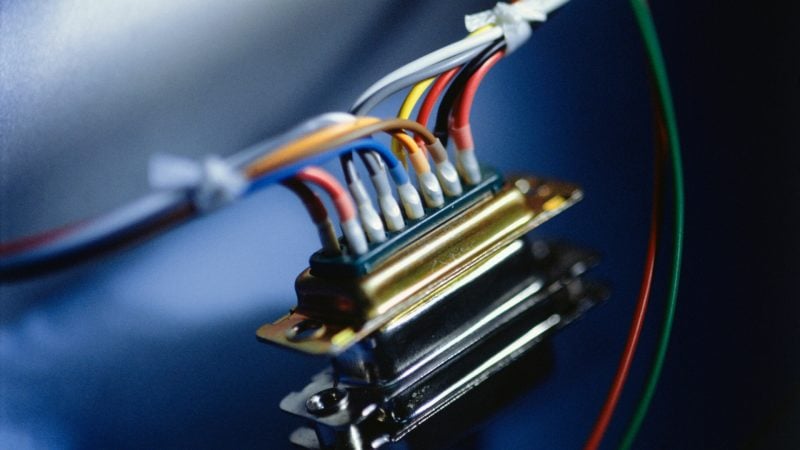Ants love to make their shelters in dark places, on electric boards, and in other electrical appliances. They have the potential to damage your electronic appliances and installations and can be a cause of frustration. The more extensive infestation of ants can go out of control and cause significant damage to your household.
How to get rid of ants in electronics? Effective methods that can be used to get rid of the ants in electrical appliances include the use of insecticides (mostly ant baits), sealing the entry points, cleaning by using aero dusters, and disposing of garbage properly. Further, we have shared some simple DIY natural home remedies to control and prevent ant infestations in your electrical appliances.
If you have a laptop or electrical outlet infected with ants, we have made separate articles for them because they require more precision or, in some cases, even professional help. Now let’s begin with our guide about ants in electrical appliances!
Types of Ants That Damage Electrical Appliances

Different ant species have a great affinity towards electronic appliances and use the tiny spaces within for shelter. Most of the reported ant species that live in electronic installations are fire ants, tawny crazy ants, carpenter ants, tiny black ants, acrobat ants, Asian super ants, Kamikaze ants, etc.
Common household ants, especially crazy ants, find cracks in the walls, holes, and dark and small spaces like electronic installations or appliances for their shelter. Due to their rapid infestation, the situation should be controlled earlier to avoid extensive damage.
Why Do Ants Attack Electrical Appliances?

Ants prefer to create shelter near electronic appliances, especially near circuit breakers, electric pumps, electric outlets, or air conditioner units. The ants detect the magnetic waves near electric wiring and can get attracted to the warmth near electric appliances. They prefer those temperature conditions more than the cooler environment.
The other reason can be bad sanitation practices. When you use electric appliances and devices with stained hands, the food particles can drop inside through the spaces. Ants get attracted to these dark and warm spaces where food residues are readily available to them.
What Damage Can Ants Cause in Your Electrical Appliances?

Early preventive measures should be taken to avoid any severe damage to electrical appliances and installations.
Larger ant infestations can cause significant problems by damaging wirings and devices and can short circuits in your entire house. If the problem is severe, the larger ant colonies can even set your house on fire.
The ants are more likely to colonize the circuit breakers, transformer boxes, water heaters, telephone boxes, electric pumps, switch boxes, air conditioners, and other electric outlets.
Methods for Getting Rid of Ants in Electrical Appliances I Step-by-Step Guide
Dealing with electronic appliances to control pest infestation can be extremely dangerous. You should avoid taking any measures to treat ants before correctly reading guidelines and instructions, and also, do not forget to turn off your power before applying insecticides.
Baits are commonly used for the effective control of ants’ attacks. You can easily purchase different baits to lure ants outside your electric appliances. Their colony will eventually die after the application of baits.
Several insecticide sprays and ant repellents are available commercially to eliminate the ants. Take note of instructions on the product before using spray near electronic appliances. Using the spray directly can damage your house wiring. Dust treatment is also an efficient method to prevent ants from nesting and to eradicate ants in appliances and near installations.
Ant Killer Sprays
Avoid using liquid chemicals to eradicate ants in electrical appliances. It can result in a short circuit and the whole system’s breakdown. Applying dust, tapes, and insect baits is the best way to get rid of ants.
- Kills Wood-Infesting Insects - Effectively kills carpenter ants,...
- Fast Acting & Long Lasting - This convenient aerosol spray kills...
- Don't Miss Your Target - The two-way spray nozzle allows for...
- Non-Staining, Odorless Formula - This non-staining spray leaves...
- Use Indoors & Outdoors - Spray around windows, doors, and entry...
However, some pesticides can be sprayed near appliances or on electrical boxes. Do not spray directly on wires, circuits, or sockets and during the application, use cheesecloth or cotton to absorb the extra spray from your wires and sockets.
Ant Baits
Ant bait is one of the most effective methods to eliminate ant infestation. Several greasy baits, fat-based baits, protein-based or sugary baits are available commercially to eliminate the ant colonies.
- ATTRACTS & KILLS: TERRO liquid ant baits indoor effectively...
- KILLS THE ANTS YOU DON'T SEE: TERRO ant bait is designed to share...
- FAST-ACTING: Noticeable ant activity reduction within days as...
- READY TO USE: Simply place ant baits indoors with no setup...
- VERSATILE HOME PLACEMENT: TERRO ant traps are ideal for use along...
- One 8 count package of Raid Ant Killer Baits protects against...
- Raid Ant Killer works for up to 3 months to help control ants in...
- This pest killer comes in convenient Raid Ant Traps where ants...
- Raid Ant Killer is ideal for use throughout your home, including...
- Try other Raid bug spray and insect killer products for all of...
- Designed for Maximum Ant Control: Built to protect your granular...
- Durable, Weather Resistant Materials: Made to last outdoors. The...
- Ready to Use Setup: Just fill with ant bait and insert the stake...
- Safe and Effective: The pet safe ant trap is equipped with a...
- Large Capacity & Fully Reusable: The divided ant bait station...
You can place the bait near your electronic appliances and the ants’ entry points. Ant baits lure the ants and eventually result in the whole colony’s death. Try one type of ant bait at first; swipe it with another type if it does not work.
Dust Treatments (Products in the form of Dust/Powder)
Different insecticides in the form of a powder (like diatomaceous earth) are available commercially. Sprinkle insecticide powder near electronic appliances for some effective results.
- Natural Product - Composed of 2lbs of 100% ground freshwater...
- OMRI Listed - Listed with the Organic Minerals Research...
- Powder Duster Included - Powder duster in the bag for easy and...
- Supports a Great Cause - Harris donates 10% of profits to support...
- Made in the USA – Mined in Nevada and packaged in Georgia
After eliminating ant colonies, keep an eye on them for a few weeks and take preventive measures to avoid their re-establishment.
Aero Duster (Blowers)
Removing food particles from electrical appliances or drying liquids spilled on these appliances can be very difficult. Nonetheless, technological developments offer practical solutions in many areas of our lives. One of these solutions for cleaning electrical appliances from ants is the aero duster which offers one of the simplest and most effective ways to get rid of ants in electrical appliances.
No products found.
An aero duster blasts air into an appliance, drying spilled liquids and removing foods and insects. Ants can be devastating because they can render any electrical appliance useless. The blast of air released by an aero duster removes ants from appliances and kills most of them during the dusting process.
How to Prevent Ants From Infesting Electrical Appliances
The foremost and earliest step in controlling ant infestations in electronic appliances is to take preventive measures.
- It is essential to have good sanitation practices in your house. Try to maintain a hygienic environment and regularly dispose of your garbage and leftovers. Do not touch switchboards, electric circuits, switch boxes, and other devices with greasy or stained hands, which can attract ants.
- Clean your appliances and devices and shake the food residue out of them. Do not give a reason for the ants to take shelter in your precious electrical devices. Wipe all the areas near electronic devices to remove crumbs and food particles.
- Make sure to seal all the spaces and holes which can be possible entry points for ants in the future. You can use rubber, Teflon, or insulating tapes for sealing or insulation of electrical parts.
- Switch off and unplug your electronic appliances before cleaning them and taking other control measures just for safety.
- Add barriers and insect repellent near appliances and inside your house to avoid the entry and colonization of the ants.
Home Remedies for Getting Rid of Ants in Electronics I Natural Methods
You can apply different home remedies to control the ant infestation in your electronic appliances.
Natural Ant Repellents
To eliminate the ant infestations in the house and in electrical appliances, place insect-repellent herbs or supplements. Many plants contain essential oils that keep the ants away from your house. Some insect-repellent plants are mint, chili, garlic, cinnamon, cucumber peels, lavender, baby powder, and camphor to prevent the infestation of ants.
Clean your appliances with soapy water. It also acts as an ant repellent and prevents pest colonization.
Dust Treatment
Apply charcoal, crushed coffee, or chalk near appliances and possible entry points to control and attack.
Natural Ant Baits
Prepare natural ant baits to lure and eradicate the ant colonies.
First bait: Mix 1 tablespoon of boric acid in 1¼ cup of sugar and then sprinkle it near the electrical appliances to lure them.
Second bait: To prepare the honey ant bait, mix 2 tablespoons of peanut butter, 0.5 teaspoons of borax, and 2 tablespoons of honey. Place the bait near circuits or electric boxes to get rid of ants.
Vacuum Cleaner
The vacuum cleaner is also an effective method to remove ants from small spaces. You can sprinkle borax or other dust like corn starch near the ants’ entry points. Then vacuum up all the ants and dispose of the waste outside of your house.
Vinegar Spray
You can also prepare insecticide spray at home by mixing apple cider vinegar and water in equal parts (1:1). This spray can be applied near electrical outlets and installations. The smell of vinegar will help to get rid of ants. Use cotton or other cloth to absorb the excess spray.
Do not forget to switch off the electric power before any treatment!
Different types of ants, especially crazy ants, are notorious for the infestation of electronic devices, appliances, and installations. They can cause massive losses like circuit breakdowns and wire damage or even have the ability to burn down your house in severe cases. Keep your home clean and seal all the cracks or crevices with Teflon, rubber, or insulating tapes to eliminate the entry points of ants in the electronic appliances.
The eradication of ants in electronic appliances can be tricky and extremely dangerous if you do not know about it. There is a need to take precautionary measures before the application of insecticides. Never forget to turn off the power before treating the electric appliances with insecticides. Do not use liquid spray directly on the wires and sockets to avoid short circuits.
Several industrial-strength pesticides and products in the form of dust and baits are available commercially to eradicate the ant colonies. The application of baits is the most efficient method to control infestations in electric appliances.
We hope this guide has helped you understand how to deal with the ants in your electric devices. If you liked our content, please keep following us for more pest-related content. Best of luck!
Related: How to Get Rid of Ants | Safe and Effective Methods
List of Sources
Layton B., Tawny Crazy Ant Control Recommendations, Mississippi State University
Alder P., Waldvogel M., A Guide to House-Invading Ants and Their Control, N.C. Cooperative Extension
- How to Get Rid of Copperheads | Practical Guide - August 27, 2023
- How to Get Rid of Corn Snakes | What Makes Them Aggressive? - August 27, 2023
- How to Get Rid of Alligators | Safety Measures and Removal Methods - July 16, 2023






